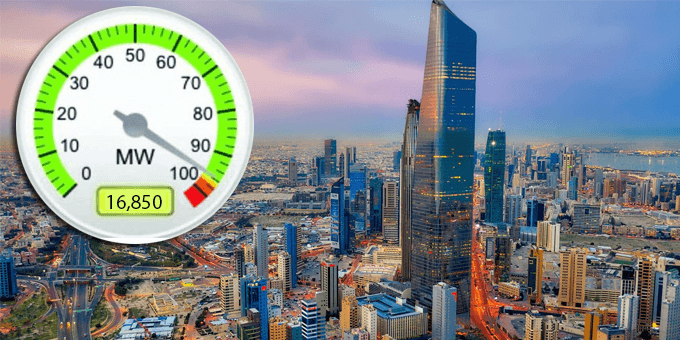23/10/2023
23/10/2023

KUWAIT CITY, Oct 23: According to informed sources in the Ministry of Electricity, Water and Renewable Energy, an increase in electricity consumption by 861.4 megawatts, or by 4.6 percent of the production, is expected during the summer of next year, amounting to 18,727 megawatts, which is the result of electricity production from eight stations, including the Shaqaya station, which produces 70 megawatts of renewable energy. The sources explained that the rate of increase in consumption is equivalent to the increase in the actual production of the stations, which puts pressure on the stations and reduces their safe operation rates.
This happens especially since the electricity load hit a record high in the history of Kuwait during the summer of 2023, reaching 16,905 megawatts on August 2. The stations are not operated at full capacity because there are a number of units that are annually under maintenance during the summer season. The sources called for the need to expedite the procedures for implementing the projects included in the ministry’s plan to meet the increasing demand for electricity in light of the expansion in the construction of new residential cities and the steady population increase.
They indicated that the ministry resorted to allocating a budget to purchase electricity worth KD 30 million from the Gulf Interconnection Authority during the current fiscal year in order to ensure the safe operation of the stations and confront any emergency during the summer, but it did not actually purchase any quantities of energy in previous years. The sources revealed that the ministry, in the summers of 2016, 2017, 2018, and 2019, took the initiative to export electricity to the Gulf network, and the quantities were recovered in the winter, as part of the electrical cooperation and exchange program. However, the energy productivity situation is different now in light of the non-implementation of new projects to produce electrical energy due to the documentary cycle and the lack of necessary budgets to propose and implement these projects.
By Mohammad Ghanem
Al-Seyassah/Arab Times Staff


